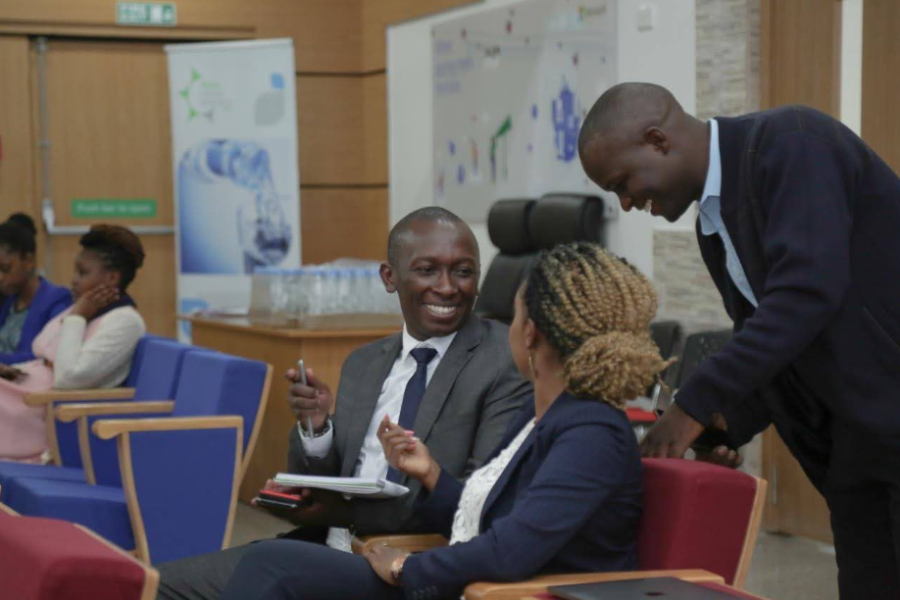In a global landscape where relationships are becoming increasingly interconnected, the art of negotiation has ascended to an unprecedented importance and the role of strategic communication cannot be under spelled. After nearly a decade of navigating the communication terrain, working with governments, the private sector, and INGOs, and having taken a course at the University of Nairobi on diplomatic negotiations, I have recognised that negotiation is not confined to boardroom debates or diplomatic treaties; It is an elemental part of human interaction and a powerful tool that drives transformation and shapes outcomes. In my article today, I take you into the broad and impactful domain of negotiation and shed light how strategic communication plays a role.
At its core, negotiation is a dialogue aimed at coming into a particular agreement. It is all about striving for mutual benefits. Though the settings may vary from everyday interactions like business deals to high-stakes international diplomacy, the underlying principles are universal. In our increasingly interwoven world, negotiation emerges as a vital skill to master. Using the lens of strategic communication, we can inject an innovative, effective approach into our negotiation processes. This approach does not just bridge gaps; it fosters a culture of dialogue, empathy, and mutual respect.
Strategic communication is the game changer in negotiation. The marriage of strategic communication and negotiation can steer the conversation in constructive directions, fostering understanding and meaningful dialogue. When at the negotiating table, strategic communication assists in transmitting your perspectives effectively, understanding others, and establishing a common ground. A remarkable illustration of this interplay is the Camp David Accords between Egypt and Israel in 1978. President Carter’s team strategically used communication to understand the needs and limitations of both sides. Carter himself took on a mediator role, presenting proposals to each party separately before bringing them together for discussion. The Accords, which ended a 31-year state of war, is a testament to the transformative power of negotiation, underpinned by strategic communication.
Digital tools have revolutionized negotiations in the contemporary world. These offer insights into patterns, trends, and potential outcomes, providing negotiators with robust data to steer their conversations. Strategic communication with digital underpinning can thus mould convincing narratives and direct the negotiation process. The negotiations leading to the Paris Agreement on climate change serve as a perfect example. The negotiators utilised digital tools to collect and analyse data about climate change, constructing persuasive narratives about the urgency to act. These insights paved the way for an agreement that is shaping global environmental policy.
Read also: How communication strategies can be used to influence behavior change
Negotiations involving governments and INGOs often unravel under the public’s watchful eyes. Media relations, in this context, can steer public perception and manage the narrative. Strategic communication mitigates reputational risks and ensures the negotiating position remains robust. A recent instance of this dynamic is the US-China trade negotiations. Both sides made effective use of media to communicate their stands, control the narrative, and maintain a strong negotiating position.
An underplayed but pivotal component of strategic communication during negotiations is emotional intelligence. Being cognizant of one’s emotions and empathising with those of others can guide the negotiation narrative, reduce defensiveness and encourage receptiveness. A stellar instance of the impact of emotional intelligence in negotiation is the Good Friday Agreement in Northern Ireland. The negotiators acknowledged and respected the emotional stakes involved, creating an environment conducive to open dialogue and eventually leading to an agreement that ended decades of conflict.
Negotiation is not a contest between winners and losers. It is about crafting sustainable, mutually beneficial outcomes. Strategic communication facilitates understanding, respect, and collaboration, leading to agreements that stand the test of time. Remember, the power of communication is not just in speaking; It is about creating understanding. It is about listening, reflecting, and then communicating your ideas in a way that resonates with others. When this strategy is applied to negotiations, it becomes a transformative force, shaping outcomes and directing futures.
I encourage you to reflect on your own negotiation experiences and consider how strategic communication could have enhanced those dialogues. Our exchanges, be it on the international diplomatic stage or the local community forum, have the potential to become more fruitful when guided by strategic communication. Join me again as we explore more such fascinating intersections in the world of communication. Share your insights, experiences, and ideas below and let us foster a global conversation on the art and science of negotiation. Feel free to reach out via the contact section of my website.



